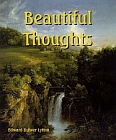
Principles of Freedom

Description
by
Terence MacSwiney
Late Lord Mayor Of Cork
Why should we fight for freedom? Is it not strange, that it has become necessary to ask and answer this question? We have fought our fight for centuries, and contending parties still continue the struggle, but the real significance of the struggle and its true motive force are hardly at all understood, and there is a curious but logical result. Men technically on the same side are separated by differences wide and deep, both of ideal and plan of action; while, conversely, men technically opposed have perhaps more in common than we realise in a sense deeper than we understand.
Large Print, 15 point font
**************
Excerpts:
Religion
I wish to make a note on the article under this heading to avoid a possible misconception amongst people outside Ireland. In Ireland there is no religious dissension, but there is religious insincerity. English politicians, to serve the end of dividing Ireland, have worked on the religious feelings of the North, suggesting the danger of Catholic ascendancy. There is not now, and there never was, any such danger, but our enemies, by raising the cry, sowed discord in the North, with the aim of destroying Irish unity. It should be borne in mind that when the Republican Standard was first raised in the field in Ireland, in the Rising of 1798, Catholics and Protestants in the North were united in the cause. Belfast was the first home of Republicanism in Ireland. This is the truth of the matter. The present-day cleavage is an unnatural thing created by Ireland's enemies to hold her in subjection and will disappear entirely with political Freedom.
It has had, however, in our day, one unhappy effect, only for a time fortunately, and this is disappearing. I refer to the rise of Hibernianism. The English ruling faction having, for their own political designs, corrupted the Orangemen with power and flattery, enabled them to establish an ascendancy not only over Ulster, but indirectly by their vote over the South. This becoming intolerable, some sincere but misguided Catholics in the North joined the organisation known as THE ANCIENT ORDER OF HIBERNIANS. This was, in effect, a sort of Catholic Freemasonry to counter the Orange Freemasonry, but like Orangeism, it was a political and not a religious weapon.
Further, as a political weapon, it extended all through Ireland during the last years of the Irish Parliamentary Movement. In Cork, for example, it completely controlled the city life for some years, but the rapid rise of the Republican Movement brought about the equally rapid fall of Hibernianism. At the present moment it has as little influence in the public life of Cork as Sir Edward Carson himself. The great bulk of its one-time members have joined the Republican Movement. This demonstrates clearly that anything in the nature of a sectarian movement is essentially repugnant to the Irish people.
As I have pointed out, the Hibernian Order, when created, became at once a political weapon, but Ireland has discarded that, and other such weapons, for those with which she is carving out the destinies of the Republic. For a time, however, Hibernianism created an unnatural atmosphere of sectarian rivalry in Ireland. That has now happily passed away. At the time, however, of the writing of the article on Religion it was at its height, and this fact coloured the writing of the article. On re-reading it and considering the publication of the present work I was inclined to suppress it, but decided that it ought to be included because it bears directly on the evil of materialism in religious bodies, which is a matter of grave concern to every religious community in the world.
232 pages - 7 x 8½ softcover
ISBN-10: 1610336712
ISBN-13: 9781610336710
















